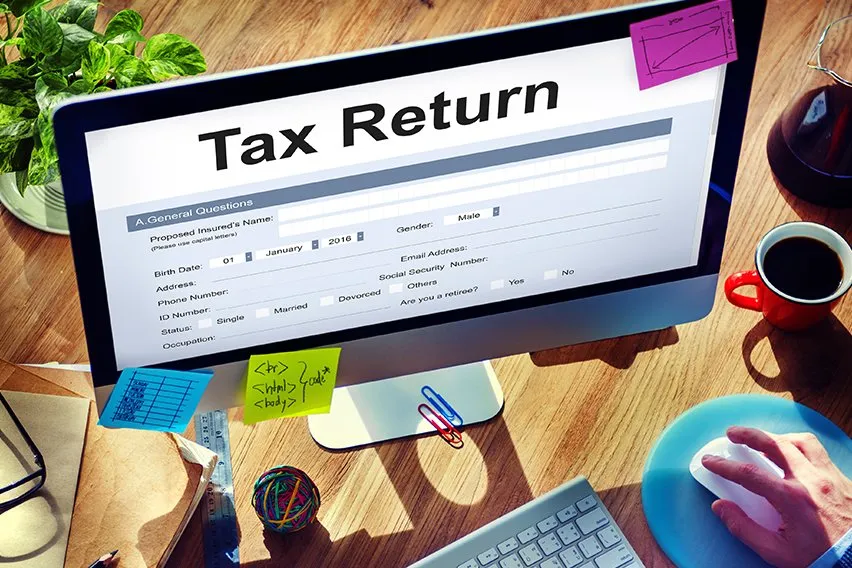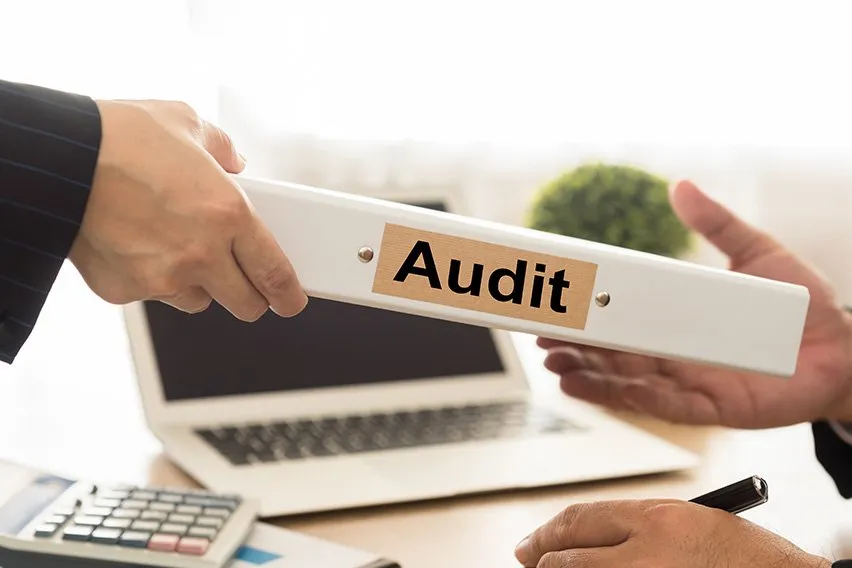How to Become a Tax Preparer: A Complete Guide

Are you looking for a career with great flexibility, high demand, and variety in your day-to-day tasks? Tax preparation could be the job you’ve been searching for. Tax preparers can work how and when they like, taking on as few or as many clients as they want and customizing their offerings according to their skillsets and preferences.
How do you go about entering this lucrative career? What are the steps to get started, and how do you know if it’s the right job for you? In this article, we’ll explain everything you need to know about how to become a tax preparer.
Key Takeaways
- Tax preparers are professionals who prepare, file, consult, and assist with tax forms for individuals and businesses.
- To become a tax preparer, you must satisfy a few IRS requirements, including passing the IRS suitability check and obtaining a preparer tax identification number (PTIN)—a post-secondary degree is not required.
- You can also choose to become an enrolled agent (EA), which means the IRS has officially licensed you, and you have more credentials than a regular tax preparer.
- Besides EAs, there are 3 other types of specialized tax prep experts: certified public accountants (CPAs), tax attorneys, and Annual Filing Season Program (AFSP) record of completion holders, all of which have unique requirements.
- To become a certified, paid tax preparer, you’ll have to obtain a preparer tax identification number, an electronic filing identification number (EFIN), register with your state (if required), gain work experience, and choose your tax preparation software.
- Technically, you’re a tax preparer as soon as you obtain your PTIN and EFIN, but it usually takes about 2 years to build up your business.
- The starting salary for these tax professionals is around $30,000 to $50,000, but this can vary greatly depending on your skills, experience, workload, and contacts.
Table of Contents
- What Does a Tax Preparer Do?
- Tax Preparer Requirements
- Tax Preparer Certification
- Types of Tax Preparer
- How to Become a Certified Tax Preparer?
- How Long Does It Take To Become a Tax Preparer?
- Common Tax Forms and Types of Returns Prepared by Tax Preparers
- Average Salary of Tax Preparers
- Use FreshBooks to Enhance Your Tax Preparation
- FAQs About How to Become a Tax Preparer
What Does a Tax Preparer Do?
A tax preparer’s job is to prepare, file, and generally assist with tax forms. They’re hired by companies, entrepreneurs, and business owners, helping their clients comply with federal and state tax laws and reducing their clients’ tax liabilities.
These tax experts often prepare tax returns, reducing their clients’ taxable income and saving them money while ensuring compliance. Depending on your credentials as a tax preparer, you may also have representation rights, meaning you can defend your clients from the IRS in situations like audits and tax court issues.
Tax Preparer Requirements
Becoming a paid tax preparer requires far less certification than those of similar jobs, such as accountants. Rather than requiring a degree, preparers only need to receive certification by taking a course. This course teaches you the essentials of tax law and gives you the skills to prepare tax documents and advise on tax matters confidently.
Once you have your certification, you’ll need to invest in tax preparation software—a must for serious tax professionals. You’ll also have to get a preparer tax identification number from the IRS, enabling you to legally prepare taxes on behalf of other people or entities. Since this is a freelance job, there are no formal experience requirements—it’s up to you to convince clients that you’ll be of value to them. That said, experience in bookkeeping or advanced tax filing will help you land more clients in the first years of your practice.
Tax Preparer Certification
To become certified as a tax preparer, you’ll need to pass an IRS test, known as a suitability check, to receive your PTIN. This basic certification for tax prep professionals enables you to complete tax returns and submit them on behalf of others. However, it doesn’t permit you to provide more advanced services, such as anything that a CPA or tax lawyer would typically do.
You can also become an enrolled agent, which means passing more challenging tests. Enrolled agents are officially licensed by the IRS, giving them the highest possible credentials for tax professionals. As an enrolled agent, you must also meet continuing education requirements to maintain your certification.
In some states, you need additional certification to begin work as a tax preparer. These states include California, Connecticut, Maryland, Nevada, New York, and Oregon, though other states may have unique requirements. Check with your state tax authority to determine the particular requirements and certifications they may require.
Types of Tax Preparer
When you begin working as a professional tax preparer with your preparer tax identification number and no other credentials, the IRS considers you an unenrolled preparer. This means that while you’re permitted to file and submit tax returns on behalf of your clients, you can’t contact the IRS directly regarding tax returns, even those of your clients. To be able to contact the IRS, you must be 1 of 4 types of credentialed, paid tax preparers:
Enrolled Agent
Enrolled agents, or EAs, are tax experts directly licensed by the IRS. There are no post-secondary requirements to become an EA—instead, you’ll have to pass a 3-part IRS exam, which covers the fundamentals of tax law and regulation, practical applications of tax practices, taxation ethics, and an understanding of the e-file system. You’ll also be subject to a background check. To maintain your status as an EA, you’ll need to have an active PTIN and complete 72 hours of continuing education over 3 years, including 2 hours on ethics in taxation every year.
Certified Public Accountant
Certified public accountants are more highly regarded tax experts due to the greater requirements for earning the license. To become a CPA, you must pass a 4-part exam covering all aspects of financial accounting and regulation, including some tax-specific topics. Every state has its own licensing process and board for CPAs—some require a bachelor’s degree with a minimum of 150 credit hours, while others might require a certain amount of hours working under the supervision of a practicing CPA. Double-check your state’s CPA licensing board for details on the process in your area.
Attorney
Becoming an attorney is a long process, requiring you to go to law school and pass the bar exam in your state. You’ll also be subject to a background check before practicing as an attorney. Depending on your specialization, you may work with various tax matters as an attorney, from solely focusing on business taxes to dealing with tax elements of elder or family law matters.
Annual Filing Season Program Record of Completion Holder
If you maintain an active PTIN, meet the annual continuing education requirements, and pass an IRS-approved tax test, you can apply to become an AFSP record of completion holder. These tax prep professionals have limited representation abilities. Still, they can represent clients to the IRS as long as they were an AFSP record of completion holder when the tax return was prepared and still are if and when the IRS makes inquiries into the client.
How to Become a Certified Tax Preparer?
Becoming a successful certified tax preparer is a multi-step process, but one that’s very rewarding. Here are the main steps to becoming a certified tax expert.
Obtain a PTIN
The first step in becoming a certified tax professional is getting your preparer tax identification number, or PTIN, from the Internal Revenue Service. You can get a PTIN for the current tax year by going to the IRS’s PTIN online portal, where you’ll enter personal information and details about your business. Getting a PTIN is essential if you want clients to pay you to prepare tax returns.
Apply for an EFIN
If you plan to file tax returns on behalf of your clients electronically, you’ll need to obtain an electronic filing identification number, or EFIN for short. An EFIN is only required if you have your own practice or are a co-owner of a tax firm (holding more than 5% interest in the partnership). The Internal Revenue Service has detailed instructions on how to apply for an EFIN. You’ll need to provide your fingerprints digitally using the IRS’s authorized vendor and be subject to a background check.
Register With Your State
Depending on the state where you do business as a tax preparer, you might be required to register with a state-level authority before you can do any tax prep work for your clients. There are currently 7 states which regulate tax preparers:
- California: You must complete a 60-hour state-approved tax prep course and carry a $5,000 bond to be approved as a tax preparer in California (unless you are an EA, CPA, or attorney). You also need to take 20 hours of continuing education each year.
- Connecticut: You must obtain a permit every 2 years for $100 to practice as a tax preparer in Connecticut unless you are an EA, CPA, or attorney. You also must hold a high school diploma.
- Illinois: There are no special exams or licensing requirements for preparers in Illinois, but they must put their PTINs on their state tax returns. The Illinois state government also has the right to bar or fine unenrolled tax prep professionals.
- Maryland: You must complete 80 hours of tax law education, score 70% or higher on a state tax law exam, which you must take every 2 years, and hold a high school diploma or equivalent to be a tax preparer in Maryland. You must also complete 16 hours of continuing education before taking the Maryland tax law exam. EAs, CPAs, attorneys, and government employees are exempt from these requirements.
- Nevada: Preparers must register with the state of Nevada for a small fee to practice there and re-register every year. You’ll also need a surety or cash bond of $50,000 on file with Nevada’s secretary of state. CPAs, financial planners, and some attorneys are exempt from these requirements.
- New York: New York requires tax preparers to hold a high school diploma or equivalent, be 18 or older, and complete at least 4 hours of continuing education each year. EAs, CPAs, and attorneys are exempt.
- Oregon: Oregon tax preparers must complete 80 hours of tax law education, score at least 75% on a state tax law exam, and renew their license annually. Credentialed tax professionals and attorneys (and their employees) are mostly exempt.
Gain Work Experience
The amount you earn as a tax prep expert depends on your skill and experience. The best way to start charging higher rates is to gain more work experience, such as through internships at tax preparation firms, seasonal work with clients in the months leading up to the tax filing date, or a job at a tax prep office. These are great ways to develop your skills, build contacts, and gain valuable experience as a professional preparer.
Choose a Tax Preparation Software
Another crucial part of tax preparation is choosing the right software. Many tax professionals prefer FreshBooks accounting software. This tool has all the features tax preparers need, including assistance generating critical financial reports, organizing tax documents, and efficient expense tracking tools.
FreshBooks makes tax preparation much simpler thanks to its automated features, meaning you can rely on it to handle the more tedious and time-consuming tasks associated with the tax prep process. Plus, you’ll make far fewer errors when using FreshBooks, ensuring tax law compliance and accurate, quality work for your clients. In short, using excellent accounting software will improve your reputation and boost your career as a tax preparer.
How Long Does It Take To Become a Tax Preparer?
Though you’re a licensed tax preparer as soon as you get your PTIN and EFIN from the IRS, most tax preparers consider themselves as true working professionals once they’re educated, certified, and licensed in their state (if necessary) and have a client list with some work experience under their belt.
How long this takes will depend on the knowledge and experience you bring to the table in the first place. Becoming a tax preparer typically takes around 2 years of building your network and successfully working in the field. It might take less time if you’re already very knowledgeable or longer if you need additional certification in your area. Also, higher or lower demand for your services will affect the time it takes to build a long-lasting tax preparation practice.
Common Tax Forms and Types of Returns Prepared by Tax Preparers
Different preparers offer different services to their clients. Your responsibilities as a tax expert could include individual income tax returns (Form 1040) or corporation income tax returns (Form 1120).
Tax preparation experts most frequently handle 2 groups of tax forms and returns: Individual forms, such as Form 1040, and business returns, including those for partnerships, corporations, trusts, and not-for-profit organizations.
Most tax professionals begin their careers preparing individual tax returns, as these clients tend to be easier to find and the work more straightforward to complete. Over time, many preparers transition to more business-oriented tax preparation services (including tax planning), which tend to be more labor-intensive with competitive rates to match.
Average Salary of Tax Preparers
The average salary of a tax prep professional can vary greatly depending on whether they’re a sole proprietor or an employee of a firm, the size of their client list, the geographical location of their practice, and their experience and certification levels. In the first year of working as a tax expert, you can expect to make between $30,000 and $50,000, though you might make more or less than this, depending on your career path.
Once your business starts getting off the ground, the salary ceiling for sole proprietors is virtually nonexistent. For employees at accounting firms, it can take more time to earn a competitive salary. However, many employees will transition to sole proprietorship after a couple of years of gaining experience at the firm.
Use FreshBooks to Enhance Your Tax Preparation
As you can see, the journey to becoming a tax preparer can be long. But with the right tools at your disposal, you can quickly gain the experience you need to expand both your client list and your offerings, commanding higher rates and growing your business in the process.
FreshBooks stands out among the rest when it comes to tools that make work easier for tax preparers. FreshBooks accounting software improves the accuracy and efficiency of the tax prep process, saving you valuable time and preventing costly errors. Plus, it has a full suite of useful automated features, built-in tools to ensure tax law compliance, and an easy-to-learn interface that doesn’t compromise functionality. See why we’re the top choice for so many tax professionals nationwide—try FreshBooks for free!
FAQs About How to Become a Tax Preparer
Do you still have questions about how to become an expert in tax preparation? Here are a few frequently asked questions—answered.
What Is the Difference Between a Tax Accountant and a Tax Preparer?
A tax accountant, or a CPA, is a certified financial expert who helps clients manage their taxes and finances at a higher level. Tax preparers work on the more granular side of the process, preparing federal tax returns to reduce their client’s tax liability and ensure compliance.
What Does the IRS Require to Be a Tax Preparer?
The minimum tax preparer certification requirements are to pass the Internal Revenue Service’s suitability check and to apply for and receive a PTIN, which allows you to prepare tax returns for clients.
What Are 2 Common Credentials for Tax Preparers?
The 2 most common credentials for tax preparers are a PTIN, which allows you to submit tax returns on behalf of your clients, and an EFIN, which permits you to file those returns electronically.
What Is Another Name for a Tax Preparer?
Other names for professional tax preparers include tax adviser, tax consultant, tax expert, tax specialist, tax professional, or tax technician. Generally speaking, all these titles refer to the same type of tax preparation work.
Reviewed by
Sandra Habiger is a Chartered Professional Accountant with a Bachelor’s Degree in Business Administration from the University of Washington. Sandra’s areas of focus include advising real estate agents, brokers, and investors. She supports small businesses in growing to their first six figures and beyond. Alongside her accounting practice, Sandra is a Money and Life Coach for women in business.
RELATED ARTICLES




 Adjusted Gross Income: What It Is and How to Calculate
Adjusted Gross Income: What It Is and How to Calculate Indirect Tax: Definition, Types, and Example
Indirect Tax: Definition, Types, and Example Freelancer Taxes: Ultimate Guide for Tax Filling & Smart Savings
Freelancer Taxes: Ultimate Guide for Tax Filling & Smart Savings Self-Employed Health Insurance Deduction
Self-Employed Health Insurance Deduction How Far Back Can IRS Audit? Everything You Need to Know
How Far Back Can IRS Audit? Everything You Need to Know Itemized Deductions: What They Mean and How To Claim
Itemized Deductions: What They Mean and How To Claim